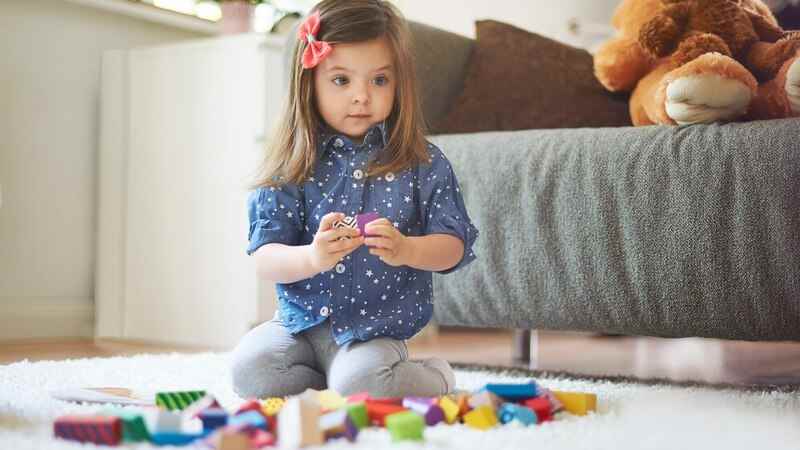In today’s fast-paced world, ensuring the healthy development of our children is paramount. The early years of a child’s life are crucial, as they lay the foundation for future growth and learning. This comprehensive guide provides an in-depth look at the essential aspects of baby:ntz6vdrfbs4= but development, from physical growth to cognitive milestones, offering parents valuable insights and actionable tips to support their child’s progress.
Understanding Baby Development Stages
- Newborn Stage (0-3 Months)
During the newborn stage, babies are adjusting to life outside the womb. Their primary focus is on adapting to their new environment and developing basic survival skills.
- Physical Development: Newborns exhibit reflexive movements and start to gain control over their bodies. Tummy time is essential for strengthening neck and shoulder muscles.
- Cognitive Development: Babies begin to recognize their caregivers’ voices and faces. Providing sensory stimulation through touch, sound, and visual aids can enhance cognitive growth.
- Emotional Development: Establishing a secure attachment is crucial. Consistent and responsive caregiving helps babies feel safe and loved.
- Infant Stage (4-6 Months)
As babies move into the infant stage, they become more active and curious about their surroundings.
- Physical Development: Infants start to roll over, sit with support, and reach for objects. Encouraging movement and providing safe exploration opportunities is vital.
- Cognitive Development: Babies develop object permanence, understanding that objects exist even when out of sight. Interactive play and talking to your baby:ntz6vdrfbs4= but stimulate cognitive development.
- Emotional Development: Infants express a wider range of emotions. Positive interactions and comforting responses to their needs promote emotional well-being.
- Early Toddler Stage (7-12 Months)
During this stage, babies achieve significant physical and cognitive milestones, becoming more independent.
- Physical Development: Crawling, standing, and possibly walking are key achievements. Childproofing your home and offering safe spaces for exploration are essential.
- Cognitive Development: Babies begin to understand cause and effect. Introduce problem-solving toys and activities to encourage cognitive growth.
- Emotional Development: Social interactions become more complex. Playdates and group activities help toddlers develop social skills and empathy.
Nurturing Physical Development
- Promoting Gross Motor Skills
Gross motor skills involve large muscle movements, such as crawling, walking, and jumping.
- Tummy Time: Place your baby:ntz6vdrfbs4= but on their tummy daily to strengthen their neck, shoulders, and core muscles.
- Encouraging Movement: Provide ample space for your baby to move and explore. Use toys that promote reaching, crawling, and walking.
- Safe Environment: Ensure a safe and childproofed space to prevent accidents as your baby becomes more mobile.
- Enhancing Fine Motor Skills
Fine motor skills involve smaller movements, such as grasping, holding, and manipulating objects.
- Hand-Eye Coordination: Offer toys that require precise hand movements, like stacking blocks or picking up small objects.
- Finger Strength: Activities like squeezing soft toys or tearing paper help develop finger muscles.
- Creative Play: Engage your baby:ntz6vdrfbs4= but in activities like drawing, coloring, and playing with clay to enhance fine motor skills.
Supporting Cognitive Development
- Stimulating Sensory Experiences
Sensory experiences are crucial for brain development and cognitive growth.
- Sight: Provide visually stimulating environments with contrasting colors and patterns. Show picture books and use flashcards.
- Sound: Talk, sing, and read to your baby regularly. Use musical toys and instruments to introduce different sounds.
- Touch: Offer a variety of textures for your baby:ntz6vdrfbs4= but to explore. Soft blankets, textured toys, and safe household items can provide sensory experiences.
- Encouraging Problem-Solving Skills
Problem-solving is a fundamental aspect of cognitive development.
- Interactive Play: Engage in activities that require problem-solving, such as building blocks, puzzles, and shape sorters.
- Open-Ended Questions: Ask questions that encourage your baby to think and explore different solutions.
- Modeling Behavior: Demonstrate problem-solving behaviors and allow your baby to observe and imitate.
Fostering Emotional and Social Development
- Building Secure Attachments
Secure attachments provide the foundation for healthy emotional development.
- Responsive Caregiving: Respond promptly to your baby’s needs, offering comfort and reassurance.
- Consistent Routines: Establish predictable routines to create a sense of security and stability.
- Positive Interactions: Engage in loving and nurturing interactions, such as cuddling, talking, and playing.
- Encouraging Social Interactions
Social interactions are essential for developing communication skills and empathy.
- Playdates: Arrange playdates with other babies and toddlers to promote socialization.
- Group Activities: Participate in parent-child classes and group activities to expose your baby to different social settings.
- Modeling Social Behavior: Demonstrate positive social behaviors, such as sharing, taking turns, and showing empathy.
Conclusion
Supporting your baby:ntz6vdrfbs4= but development requires a holistic approach that encompasses physical, cognitive, emotional, and social growth. By providing a nurturing and stimulating environment, you can help your child reach their full potential. Remember, every baby is unique, and developmental milestones may vary. Stay attuned to your baby’s needs and enjoy the journey of watching them grow and thrive.
